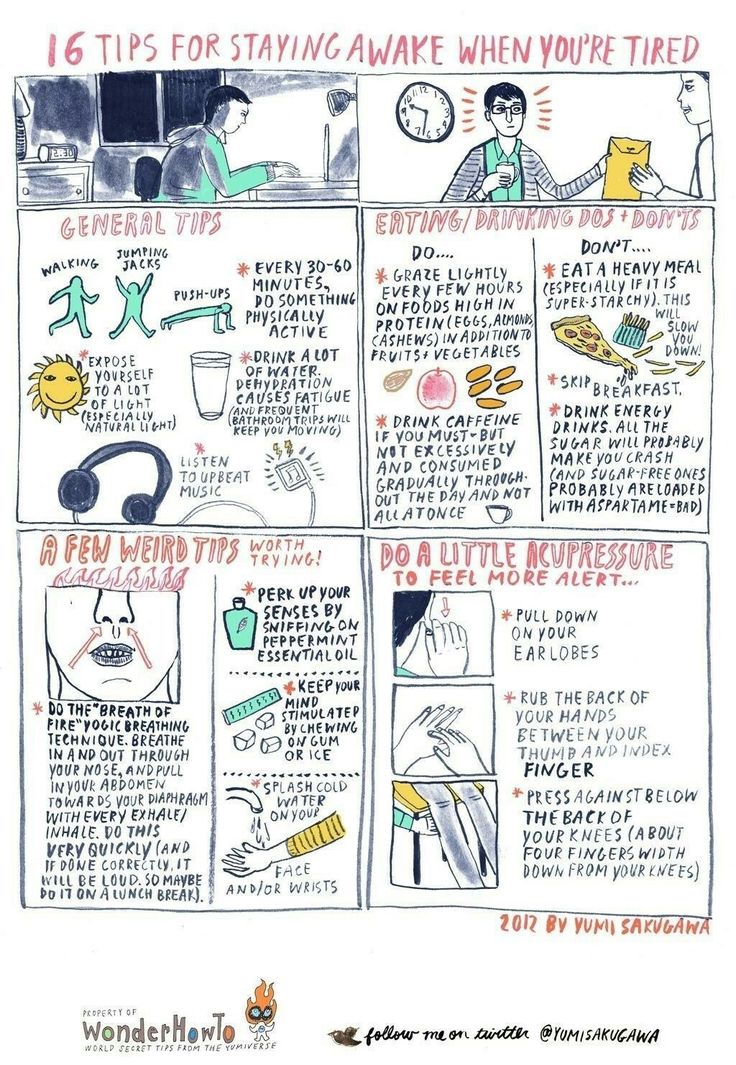As you get less sleep, it’s tempting to reach for an energy or caffeinated drink to stay awake during the day. Believe it or not, consuming these types of drinks to combat sleepiness, can lead to a vicious cycle.
Yes, caffeine will help you stay awake, but it can easily take up to eight hours to wear off. This means it can also reduce your sleep time and decrease the quality of your sleep.
So, how do can you stay awake naturally?
In one well-known study, Robert Thayer, PhD, a professor at California State University, Long Beach, studied whether people were more energized by eating a candy bar or taking a brisk 10-minute walk.
Though the candy bar provided a quick energy boost, participants were actually more tired and had less energy an hour later. The 10-minute walk increased energy for two hours. That’s because walking pumps oxygen through your veins, brain, and muscles.
If you work at a desk, get up frequently for short walks. At meal breaks, walk to a restaurant or, if you bring your lunch, head for a nice spot to eat it. Whether you take a walk outside or just in the building where you work, it will make you feel more alert and refreshed.
There are two things to remember about naps: Don’t take more than one and don’t take it too close to your bedtime.
“Nap between five and 25 minutes,” says Barry Krakow, MD, author of Sound Sleep, Sound Mind: Seven Keys to Sleeping Through the Night. It’s best to nap about six or seven hours before you would normally go to bed. If you must take a late nap close to bedtime, make it a short one.
Napping on the job can be touchy. If you need to nap at work, do it during your break and use a vibrating alarm clock, if necessary, to make sure it doesn’t spill over into your work time.
Sleeping at your desk is usually not a good idea, but many companies now provide nap rooms for employees.
“If you can’t nap, even resting quietly with your eyes closed for 10 minutes or so will help,” says Allison T. Siebern, PhD, a fellow at the Stanford University Sleep Medicine Center in Redwood City, Calif.
Continuous fixation on a computer screen can cause eyestrain and worsen sleepiness and fatigue.
Look away from the screen for a few minutes periodically to relax your eyes.
Sugary snacks give you a quick energy boost followed by the sugar “lows,” when low blood sugar produces mental fogginess and lethargy.
Snacks such as these will provide better overall energy in the long run:
If you’re fading fast, engaging in conversation can get your mind moving again.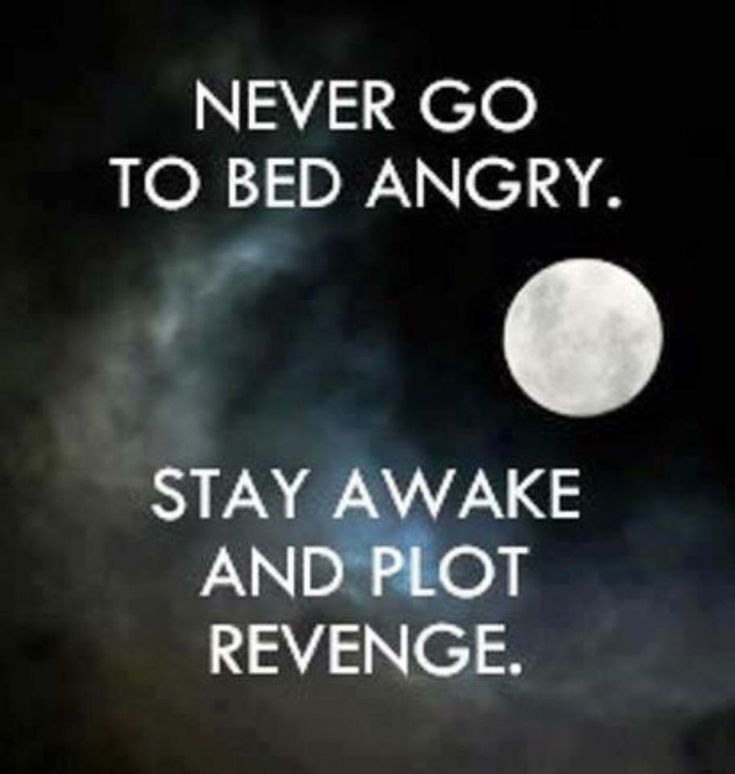 “Talk to a colleague about a business idea, politics, or religion,” says Krakow, medical director of Maimonides Sleep Arts and Sciences, Ltd. in Albuquerque, N.M. “It’s a very strong behavioral stimulator — especially when it’s a conversation about politics.”
“Talk to a colleague about a business idea, politics, or religion,” says Krakow, medical director of Maimonides Sleep Arts and Sciences, Ltd. in Albuquerque, N.M. “It’s a very strong behavioral stimulator — especially when it’s a conversation about politics.”
Environments with dim lighting aggravate fatigue. Studies have shown that exposure to bright light can reduce sleepiness and increase alertness. Try increasing the intensity of your light source at work.
Deep breathing raises blood oxygen levels in the body. This slows your heart rate, lowers blood pressure, and improves circulation, ultimately aiding mental performance and energy.
The idea of deep-breathing exercises is to inhale to the abdomen, not the chest. You can do them at your desk. Sitting up straight, try this exercise up to 10 times:
 Your chest should not move.
Your chest should not move. Another technique, called stimulating breath, is used in yoga for a quick energy boost and increased alertness:
“Driving while sleepy is as dangerous as driving under the influence of alcohol,” says Siebern. Common tricks such as opening the windows and turning on loud music won’t keep you awake for very long behind the wheel. “Have someone else drive or pull off the road and take a nap until you’re no longer sleepy,” Siebern says.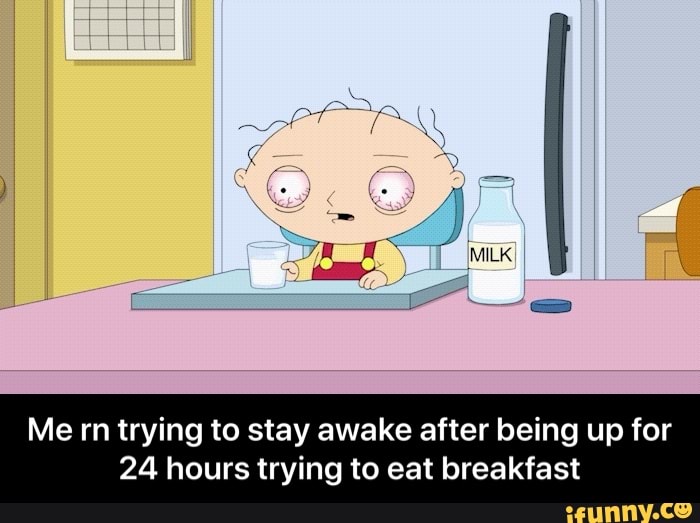
If you’re on an extended trip, change drivers often. Stop at least every two hours to take a walk and get some fresh air.
In 2004 Finnish researchers who studied people working 12-hour night shifts found that monotonous work is as harmful as sleep loss for alertness.
At work or home, try to reserve more stimulating tasks for your sleepy times. Or switch to more engaging work responsibilities when you feel yourself nodding off.
Dehydration can cause fatigue. Make sure you drink plenty of fluids and eat foods high in water such as fruits and vegetables.
Our circadian rhythms, which regulate our sleep-wake cycle, are influenced by daylight. Try to spend at least 30 minutes a day outside in natural sunlight. (Sleep experts recommend an hour of morning sunlight a day if you have insomnia. ) Even a step outside for a breath of fresh air will revive your senses.
) Even a step outside for a breath of fresh air will revive your senses.
In a 2006 analysis of 70 studies involving more than 6,800 people, University of Georgia researchers found that exercise was more effective in increasing energy and reducing daytime fatigue than some medications used to treat sleep problems.
Regular exercise also improves quality of sleep. Try to exercise 30 minutes a day.
If you decide to exercise hard some days, your energy level may drop for a bit and then surge for a few hours.
Eating a meal that contains both protein and carbohydrates within two hours after a heavy workout will lessen the initial energy loss. Be sure to finish your workout a few hours before bedtime so you are not energized when you try to sleep.
The team at Salem Health is here for you. Call our Sleep Center providers today!
Written by Camille Peri
With more and more of us getting less and less sleep, it’s tempting to reach for an energy drink or an espresso when we feel sleepy at work. But consuming caffeine to combat sleepiness can lead to a vicious cycle.
But consuming caffeine to combat sleepiness can lead to a vicious cycle.
The java jolt that helps you stay awake can take up to eight hours to wear off. Caffeine can also reduce your sleep time, alter the normal stages of sleep, and decrease the quality of your sleep.
How can you stay awake naturally? The most obvious thing is to get enough sleep and practice good sleep habits, sometimes called "sleep hygiene." For instance, you probably know that it's best to go to sleep ad get up at the same time every day, power down your screens ahead of bedtime, keep your bedroom dark and cool. You need to do that for good health, as well as feeling rested. But on the occasional day when that doesn't happen, try some of these 12 jitter-free tips to take the edge off sleepiness.
In one well-known study, Robert Thayer, PhD, a professor at California State University, Long Beach, studied whether people were more energized by eating a candy bar or taking a brisk 10-minute walk. Though the candy bar provided a quick energy boost, participants were actually more tired and had less energy an hour later. The 10-minute walk increased energy for two hours. That’s because walking pumps oxygen through your veins, brain, and muscles.
Though the candy bar provided a quick energy boost, participants were actually more tired and had less energy an hour later. The 10-minute walk increased energy for two hours. That’s because walking pumps oxygen through your veins, brain, and muscles.
If you work at a desk, get up frequently for short walks. At meal breaks, walk to a restaurant or, if you bring your lunch, head for a nice spot to eat it. Whether you take a walk outside or just in the building where you work, it will make you feel more alert and refreshed.
There are two things to remember about naps: Don’t take more than one and don’t take it too close to your bedtime. “Nap between five and 25 minutes,” says Barry Krakow, MD, author of Sound Sleep, Sound Mind: Seven Keys to Sleeping Through the Night. It’s best to nap about six or seven hours before you would normally go to bed. If you must take a late nap close to bedtime, make it a short one.
Napping on the job can be touchy.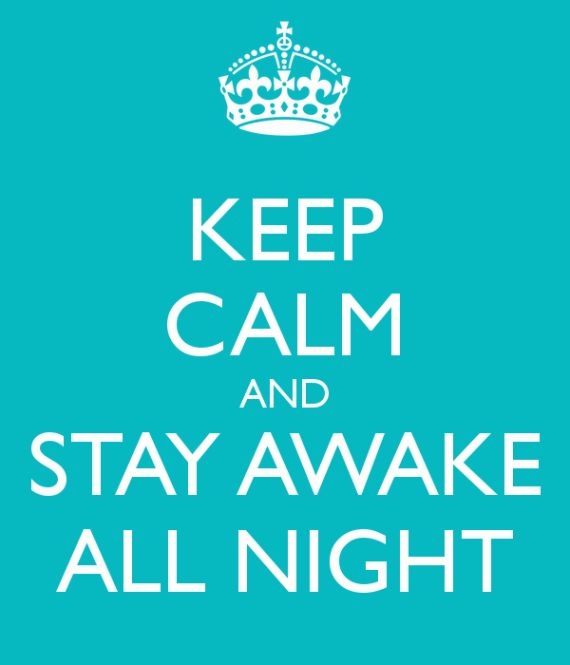 If you need to nap at work, do it during your break and use a vibrating alarm clock, if necessary, to make sure it doesn’t spill over into your work time. Sleeping at your desk is usually not a good idea, but many companies now provide nap rooms for employees.
If you need to nap at work, do it during your break and use a vibrating alarm clock, if necessary, to make sure it doesn’t spill over into your work time. Sleeping at your desk is usually not a good idea, but many companies now provide nap rooms for employees.
“If you can’t nap, even resting quietly with your eyes closed for 10 minutes or so will help,” says Allison T. Siebern, PhD, a fellow at the Stanford University Sleep Medicine Center in Redwood City, Calif.
Continuous fixation on a computer screen can cause eyestrain and worsen sleepiness and fatigue. Look away from the screen for a few minutes periodically to relax your eyes.
Sugary snacks give you a quick energy boost followed by the sugar “lows,” when low blood sugar produces mental fogginess and lethargy. Snacks such as these will provide better overall energy in the long run:
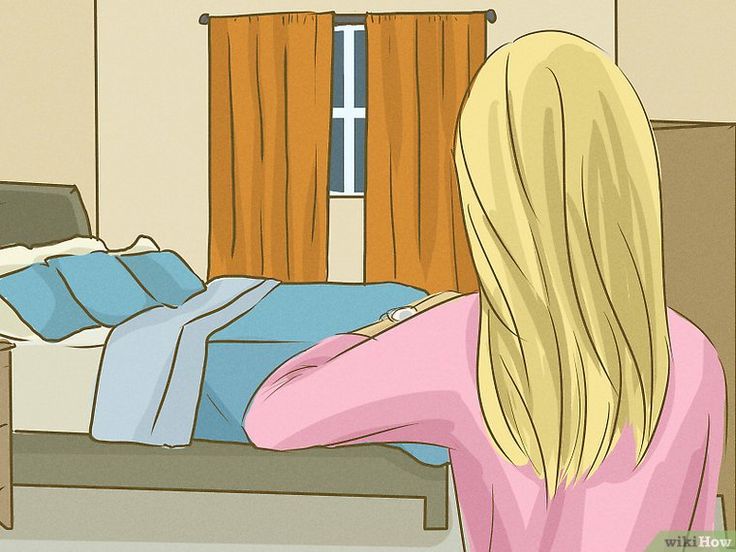 Start a Conversation to Wake Up Your Mind
Start a Conversation to Wake Up Your MindIf you’re fading fast, engaging in conversation can get your mind moving again. “Talk to a colleague about a business idea, politics, or religion,” says Krakow, medical director of Maimonides Sleep Arts and Sciences, Ltd. in Albuquerque, N.M. “It’s a very strong behavioral stimulator -- especially when it’s a conversation about politics.”
Environments with dim lighting aggravate fatigue. Studies have shown that exposure to bright light can reduce sleepiness and increase alertness. Try increasing the intensity of your light source at work.
Deep breathing raises blood oxygen levels in the body. This slows your heart rate, lowers blood pressure, and improves circulation, ultimately aiding mental performance and energy.
The idea of deep-breathing exercises is to inhale to the abdomen, not the chest. You can do them at your desk. Sitting up straight, try this exercise up to 10 times:
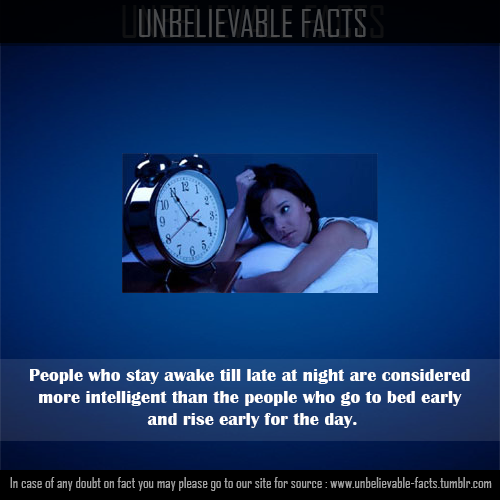 Your chest should not move.
Your chest should not move.Another technique, called stimulating breath, is used in yoga for a quick energy boost and increased alertness: Inhale and exhale rapidly through your nose, keeping your mouth closed but relaxed. Make your in-and-out breaths short -- do about three of each cycle in a second. Then breathe normally. You can do this for up to 15 seconds the first time and then add on five seconds each time after until you reach a minute.
“Driving while sleepy is as dangerous as driving under the influence of alcohol,” says Siebern. Common tricks such as opening the windows and turning on loud music won’t keep you awake for very long behind the wheel. “Have someone else drive or pull off the road and take a nap until you’re no longer sleepy,” Siebern says.
If you’re on an extended trip, change drivers often.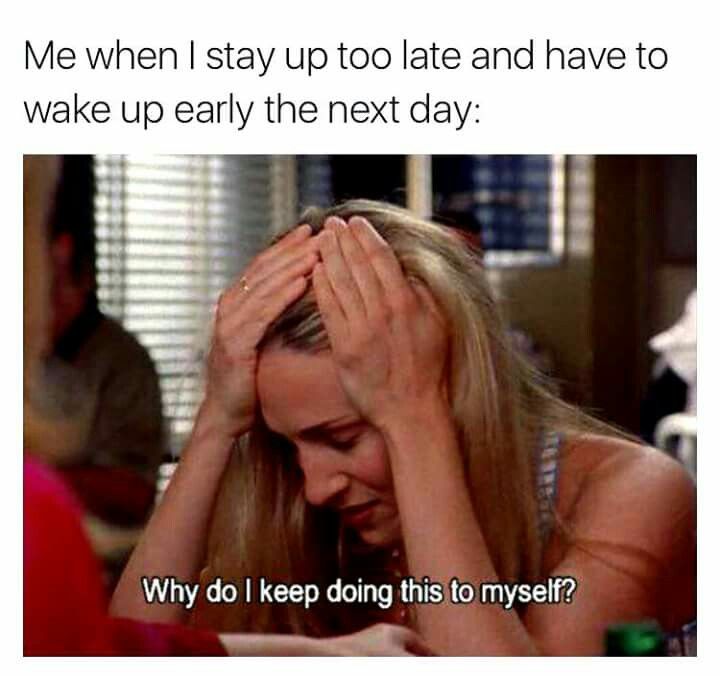 Stop at least every two hours to take a walk and get some fresh air.
Stop at least every two hours to take a walk and get some fresh air.
In 2004 Finnish researchers who studied people working 12-hour night shifts found that monotonous work is as harmful as sleep loss for alertness. At work or home, try to reserve more stimulating tasks for your sleepy times. Or switch to more engaging work responsibilities when you feel yourself nodding off.
Dehydration can cause fatigue. Make sure you drink plenty of fluids and eat foods high in water such as fruits and vegetables.
Our circadian rhythms, which regulate our sleep-wake cycle, are influenced by daylight. Try to spend at least 30 minutes a day outside in natural sunlight. (Sleep experts recommend an hour of morning sunlight a day if you have insomnia.) Even a step outside for a breath of fresh air will revive your senses.
In an analysis of 70 studies involving more than 6,800 people, University of Georgia researchers found that exercise was more effective in increasing energy and reducing daytime fatigue than some medications used to treat sleep problems. Regular exercise also improves quality of sleep.
Regular exercise also improves quality of sleep.
Try to exercise 30 minutes a day. If you decide to exercise hard some days, your energy level may drop for a bit and then surge for a few hours. Eating a meal that contains both protein and carbohydrates within two hours after a heavy workout will lessen the initial energy loss. Be sure to finish your workout a few hours before bedtime so you are not energized when you try to sleep.
If you find that you can’t stop nodding off when you need to be alert, consult a doctor or sleep specialist. You may have an underlying sleep disorder such as excessive sleepiness or narcolepsy, which can be treated. Your doctor may prescribe medications to help you with a sleep disorder. If you have trouble falling asleep because of stress or other reasons, cognitive behavioral therapy can help you develop good sleep habits and relieve sleep anxieties.
September 25 Health
Fatigue, disorientation, blackouts, and other unpleasant things you don't want to experience.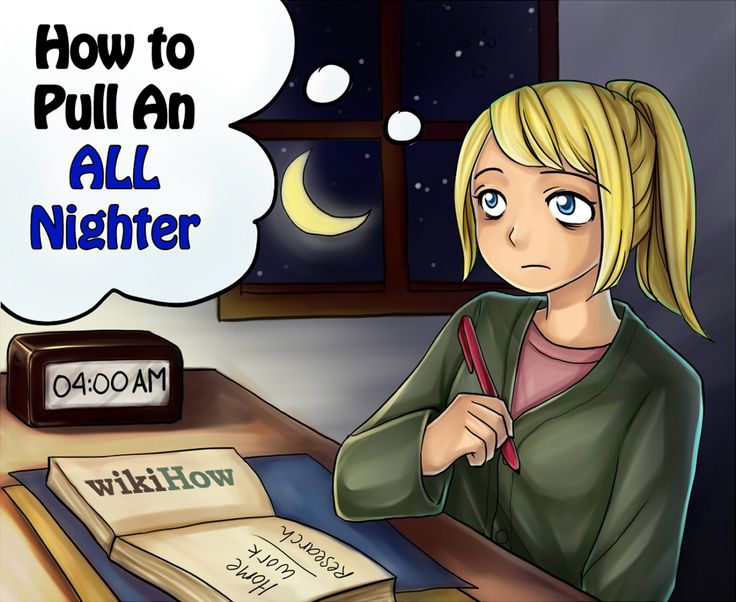
Share
0 You can listen to the article. If it's more convenient for you, turn on the podcast.
Only a third of Russians sleep 8 hours a day. This is how much, according to most doctors, an adult should sleep. If you rest less, this inevitably affects your well-being, the ability to concentrate and remember information. And the longer a person remains without sleep, the more changes occur in his body.
People experience sleep deprivation differently depending on their age, health status, living conditions and nutrition. For example, children and teenagers need more sleep than adults. Lack of sleep in childhood can cause poor academic performance, problems in communication and socialization, the emergence of bad habits and dangerous relationships, and lag in physical growth and development.
The effect of prolonged wakefulness is generally similar to that of permanent lack of sleep, the difference is only in how quickly it manifests itself.
Most people begin to feel the effects of lack of sleep after a day of continuous wakefulness.
After 24 hours without sleep
The brain is under stress, so it tries to conserve energy and enters a state of "local sleep" - it temporarily turns off part of the neurons. Because of this, drowsiness, irritability appear, concentration, coordination, the ability to reason and make decisions worsen, memory begins to work worse. Increases appetite and cravings for high-calorie foods.
According to the US Centers for Disease Control and Prevention, lack of sleep during the day is comparable to drinking 30-60 ml of pure alcohol. This is 0.8 (according to some sources, exactly 1) ppm of alcohol in the blood, which is much higher than the norm allowed in Russia. That is, driving after a day without sleep is just as dangerous as driving drunk.
After 36 hours without sleep
As Californian psychiatrists have found out, after 30 hours of wakefulness people begin to recognize emotions much worse. Due to the fatigue of the brain, the seemingly simplest operation becomes difficult.
After 48 hours without sleep

The longer a person stays awake, the stronger the negative effects of lack of sleep become. After two days, severe fatigue sets in. This causes the brain to involuntarily enter microsleep—short periods of complete unconsciousness that can last for several seconds.
After 72 hours without sleep
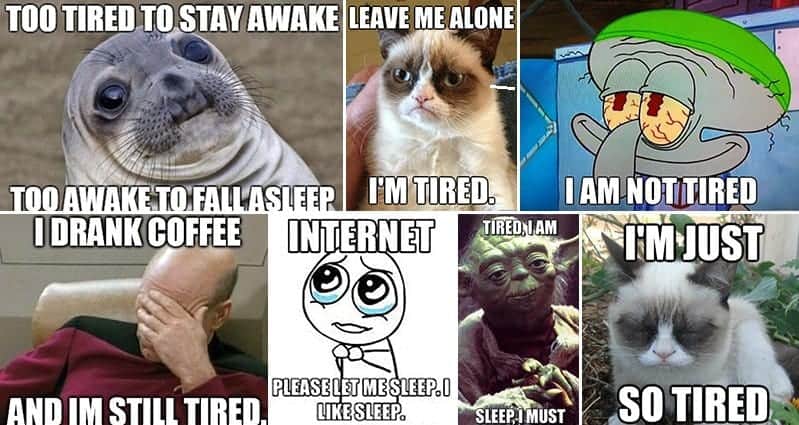 For example, he may forget what he is doing right in the course of the action.
For example, he may forget what he is doing right in the course of the action. Even healthy people find three days of wakefulness difficult. This conclusion was made by Chinese psychologists from the University of Beijing during the experiment. Its participants were in social isolation and did not sleep for 72 hours. As a result, their pulse increased, undesirable effects appeared in the amplitude of heart contractions, and their mood worsened.
An ordinary person who has not slept for three days will experience extreme fatigue, problems with concentration and memory, paranoia, depression. It will become difficult for him to do several things at the same time and communicate with other people.
Most of the listed effects disappear if you get enough sleep. Partially, they can be smoothed out with the help of proper nutrition and plenty of fluids, but this still does not replace proper sleep.
Find out 🌜
No one knows for sure. The most famous wakefulness record holder is Randy Gardner. In the winter of 1963-1964, as part of a school science project, he lasted 264 hours without sleep - more than 11 days - and broke previous records (Albert Shilbert and George Patrick - 90 hours, Peter Tripp - 201 hours, Tom Rounds - 260 hours). Two classmates helped him stay awake, but Stanford University professor William Dement and Colonel John Ross set a record and monitored the student's health.
Randy did not take any chemical stimulants to keep him awake. Although the student was in good physical condition and could beat Dement in pinball during the last days of the experiment, the lack of sleep greatly affected his mental abilities.
On the fourth day, Gardner began to hallucinate: he imagined himself an American football league player and mistook a road sign for a person.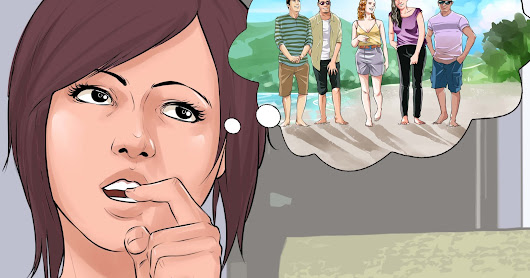
On the last day of the experiment, Randy was unable to consistently subtract seven from the previous figure, starting at 100. He stopped at 65 because he forgot what he was doing.
The results of this experiment were studied by psychiatrists from Arizona. They came to the conclusion that Randy Gardner's brain has adapted to constant wakefulness, alternately turning off and on part of the neurons. After this experiment, the Guinness Book of Records stopped registering such achievements.
Nevertheless, attempts to break Gardner's record continued. So, in 2007, 42-year-old Briton Tony Wright lasted 274 hours without sleep. In order not to pass out, he drank tea, played billiards and kept an online diary, and cameras monitored the purity of the experiment. Wright admitted that he was very tired. During the experiment, his speech sometimes became incomprehensible, and the colors were perceived as very bright. There were other daredevils, but none of the subsequent cases were verified.
Animal experiments might help answer the question of how long a person can live without sleep. However, the last such experiment was carried out by a doctor from Russia, Marina Manaseina, already at the end of the 19th century. She did not let the puppies sleep, and after five days they were dying. This allowed Manaseina to assert that sleep is more important for the body than food. At the same time, she herself admitted that the experiment was difficult for her.
Take care of yourself 😲
Not only long-term lack of sleep leads to negative consequences for the body, but also constant lack of sleep. For example, when you have 5-6 hours of rest instead of the prescribed 7-8 hours every day. The effect can accumulate and manifest itself in symptoms similar to those that occur with extreme wakefulness:
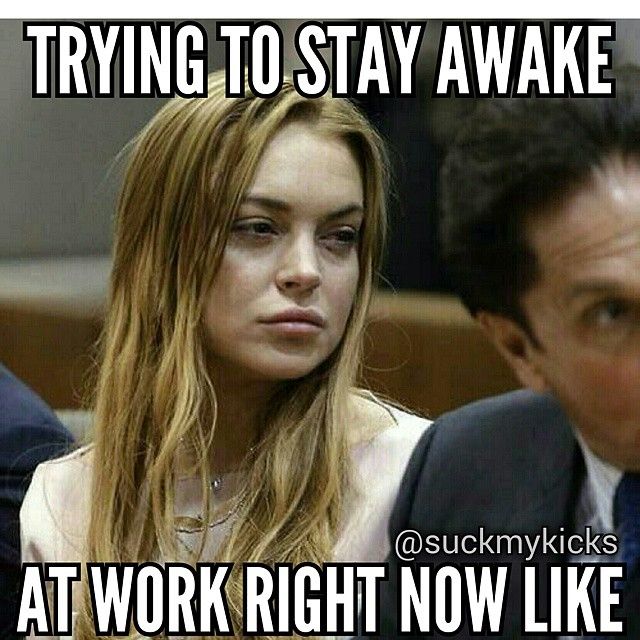
Studies on rats have shown that lack of sleep negatively affects the body's ability to heal wounds and the formation of new brain cells.
Deprivation is usually perceived as torture, but in some cases it can be useful. For example, Swiss psychiatrists have studied the effects of total and partial sleep deprivation on the depressive state of patients. Using this measure in combination with others, in particular taking antidepressants, doctors achieved a quick cure in 60% of cases.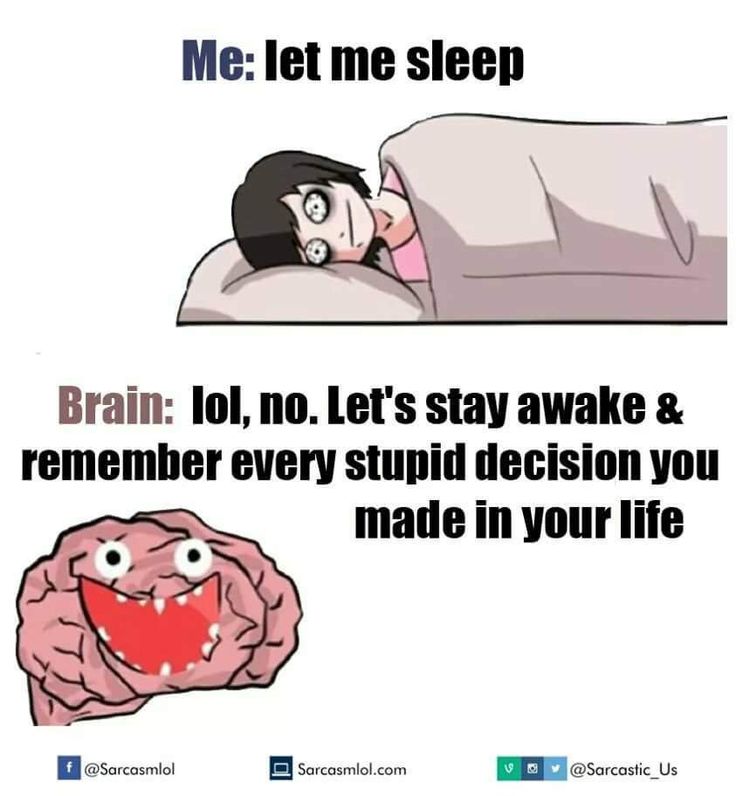
Also, oddly enough, sleep deprivation can be used to treat insomnia. A controlled sleep-restriction regimen helps the body return to its normal cycle of activity and rest. When combined with cognitive behavioral therapy, this treatment has proven to be effective.
We all sometimes sacrifice rest for the sake of work, an exam, or an interesting series. But it is important to remember that proper sleep is one of the conditions for our health. Do not experiment on yourself.
Read also 😴🛌💤
*Activity of Meta Platforms Inc. and its social networks Facebook and Instagram are prohibited in the territory of the Russian Federation.
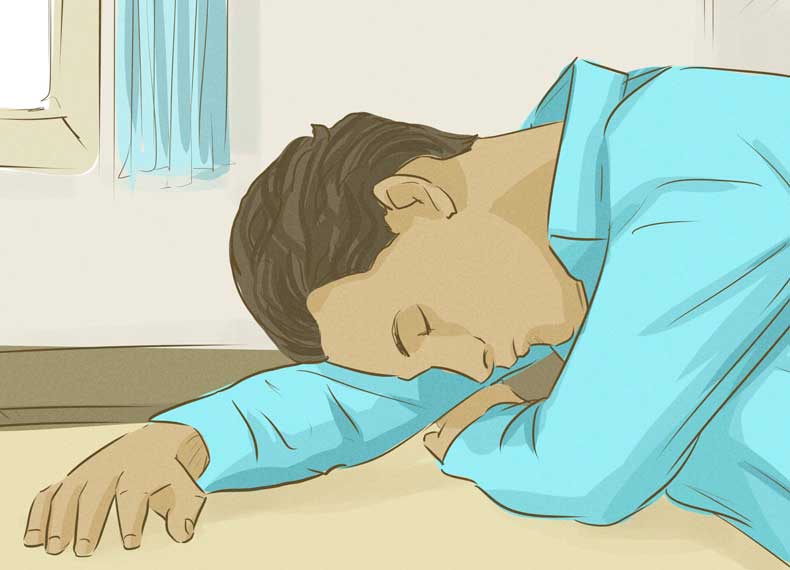 ua2
ua2
Twice a year, time manipulation disrupts our biorhythms, disturbs our sleep, and causes us to yawn much more than usual at work. And if the autumn turn of the hands gives us an extra hour for sleep, then the transition to daylight saving time makes our bodies get used to earlier rises. As a result, fatigue, irritability and decreased concentration.
The easiest and most familiar way to activate the body is invigorating drinks. Prepare a cup of good coffee the way you like it. Just don't get carried away - it's better to drink coffee no more than three times in 8 hours. And remember that strong green tea invigorates no worse than espresso.
Prepare a cup of good coffee the way you like it. Just don't get carried away - it's better to drink coffee no more than three times in 8 hours. And remember that strong green tea invigorates no worse than espresso.
Leave your work area for a few minutes and walk briskly down the hallway or run up and down the stairs. Just a few jumps in place or squats will fill the body with energy and vigor. If there is no time for this, warm up on the spot: move your feet, stretch, make a few energetic swings with your arms.
A breath of fresh air is no worse than a sip of fresh coffee. And bright lighting, especially daylight, helps the brain understand that it is time to become more active. Open the blinds and the window, take a few deep breaths, take in the view, or better yet, go outside and walk vigorously back and forth. It’s good if you manage to catch the sun - its light will spur the production of endorphins, and they, in turn, will make you more active and focused.
Eat an orange, tangerine or grapefruit. The aroma of citrus fruits will invigorate the nervous system, and vitamin C will activate the body.
Place your palms under running water. Alternately change cold water to hot and vice versa. A few minutes of such a "shower" - and sleep in one eye.
Do acupressure: rub your hands and massage your fingers from the tips to the base of the palm, press the active points located between the thumb and forefinger.
Stirlitz did everything quickly and efficiently, even rested. The recommendation of a well-known intelligence officer boils down to the formula: 20 minutes of an afternoon nap allows you to get rid of fatigue and not want to sleep during the day. During this time, the brain has time to rest, and the body relaxes and relieves stress.
Whatever one may say, if you want to sleep all the time, you just don't get enough sleep.